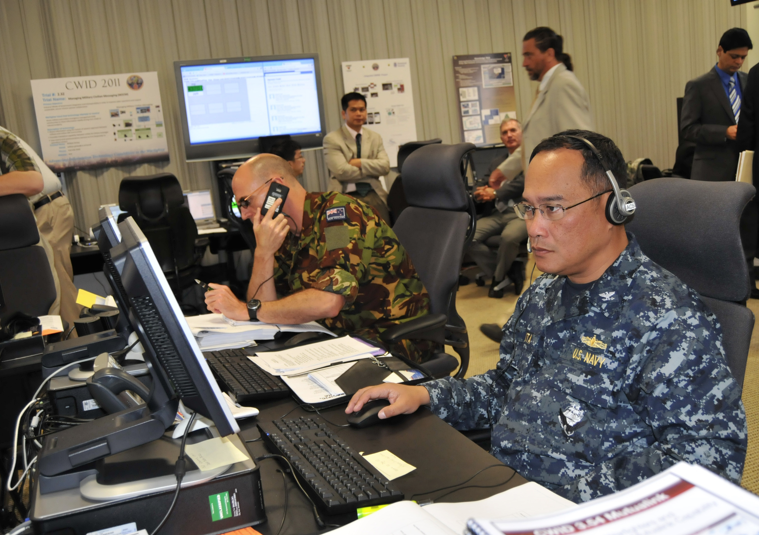Secret Cyber War Games Between U.S. and China Let Countries Role-Play Their Frustrations
China and the U.S. are playing pretend war to vent their mutual frustrations and avoid a real one, according to...

China and the U.S. are playing pretend war to vent their mutual frustrations and avoid a real one, according to a report by the Guardian. The State and Defense departments participated in two hypothetical-conflict sessions last year, and another round is planned for May. The war games were designed to prevent a “sudden military escalation” amid burgeoning anger in Washington over cyber attacks that the U.S. says are originating in China.
For its part, China is feeling a bit bellicose, the Guardian reports.
These war games are designed to let officials talk about hypothetical conflicts in a way that indirectly addresses their pent-up frustrations. The Guardian extensively quotes Jim Lewis, a senior fellow and director at the Center for Strategic and International Studies in Washington, who helped organize the war games.
During the first round, officials had to talk about what they would do if they were attacked by a computer virus like the Stuxnet worm that disabled nuclear facilities in Iran. Then they had to discuss how they’d react if they found out the attack was launched by the other side. “Known as “Track 1.5″ diplomacy, it is the closest governments can get in conflict management without full-blown talks,” the newspaper reports.
This is an interesting way to handle a potentially volatile situation, talking around it as if it’s hypothetical and not reality or eventuality. But using pretend situations can be a diplomatic, non-confrontational way for the U.S. to puff its chest. A description of how we’d react if China sanctioned a cyber-attack — we know you won’t do it, China, but just in case, here’s what we’d do to you — is a tacit deterrent to would-be attackers.
The U.S. has been ramping up its cyber-defense systems and awareness, and even warning would-be hackers that cyber attacks can constitute an act of war. But attackers have also been turning up the heat — recently, Chinese officials had to deny they were involved in a China-based hacking of U.S. space assets. This sort of incident is becoming more common, to the increasing frustration and anger of American officials.
While it sounds like the Stuxnet imaginary situation went well, the second didn’t go so smoothly, according to Lewis’ account to the Guardian, which you can read here. The Chinese deeply distrust our government and feel like they’ve been treated unfairly. And Lewis believes the U.S. is bracing for a potential escalating conflict, too.
Maybe role-playing will help both sides understand the potential fallout if cooler heads don’t continue to prevail.